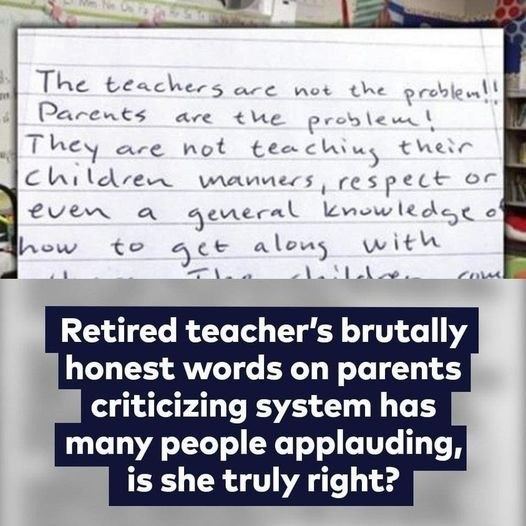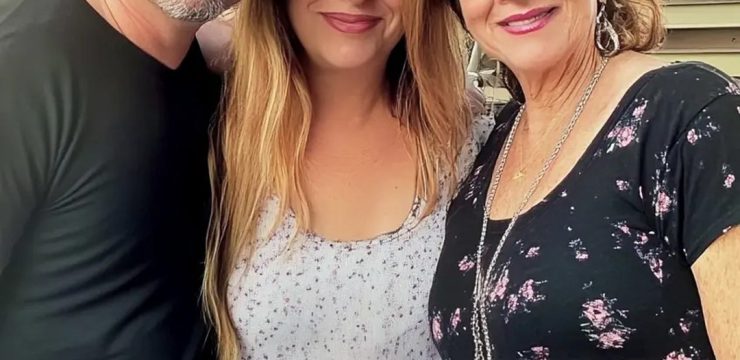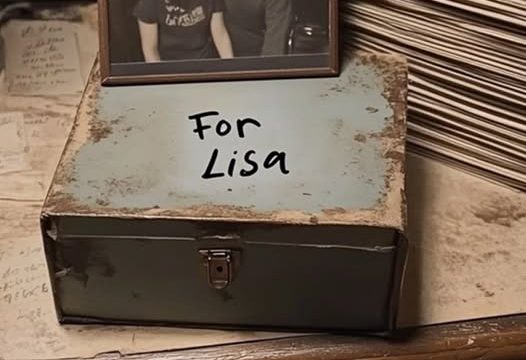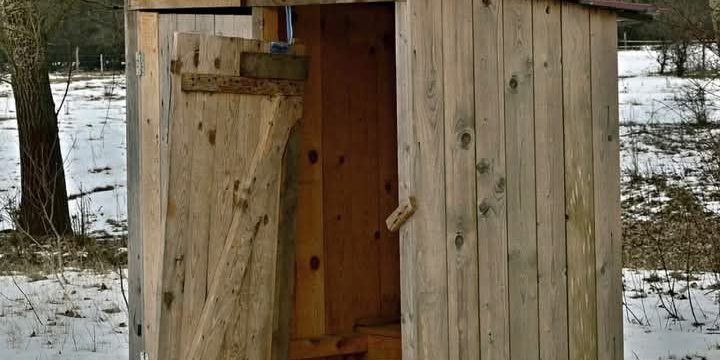
In a world where education often finds itself at the center of debate, a retired teacher’s heartfelt letter has resonated with thousands, shedding light on the crucial role parents play in their children’s academic success.
A Candid Message from the Heart
The Teacher’s Perspective
Lisa Roberson, a former educator, didn’t mince words in her letter. She expressed frustration with outsiders dictating educational reforms without firsthand classroom experience. Her central thesis? The challenges in education stem more from parental involvement than from teachers’ efforts.
Highlighting Parental Responsibilities
Roberson emphasized that many students arrive at school lacking basic manners, respect, and essential supplies. She pointed out the irony of children wearing expensive footwear yet being unprepared with simple learning tools like pencils and paper—items teachers often end up providing themselves.
Provocative Questions for Reflection
Engaging Parents Directly
To drive her point home, Roberson posed several thought-provoking questions to parents:
- Are you attending parent-teacher meetings?
- Do you maintain regular communication with educators?
- Is your child equipped with necessary school supplies?
- Do you ensure homework is completed?
Challenging Student Behaviors
She also urged parents to consider their children’s classroom conduct:
- Are they attentive and respectful?
- Do they actively participate and take notes?
- Are they contributing positively or causing disruptions?
A Call for Parental Accountability
Roberson concluded with a powerful assertion: the perceived failure in education is more about parental shortcomings than school systems. She stressed that teachers cannot fulfill both their professional duties and parental roles simultaneously.
The Core Message: Partnership in Education
Foundations Begin at Home
The letter underscores a fundamental truth: while schools are responsible for imparting academic knowledge, the groundwork for behavior, respect, and responsibility is laid at home. Parents are the primary educators in a child’s life, setting the stage for future learning and interactions.
Teachers as Academic Guides
Educators build upon the foundation established by parents. When children come to school prepared and well-mannered, teachers can focus on delivering quality education rather than managing behavioral issues.
The Ripple Effect of the Letter
Nationwide Applause
Roberson’s letter struck a chord, leading to widespread discussions about the dynamics between parental involvement and educational outcomes. Many praised her for voicing concerns that educators have long grappled with.
A Catalyst for Change
The viral nature of the letter has prompted parents, educators, and policymakers to reevaluate and emphasize the importance of active parental participation in the educational journey.
Conclusion
Lisa Roberson’s heartfelt message serves as a poignant reminder that education is a collaborative effort. For students to thrive, a strong partnership between parents and teachers is essential. By fostering this alliance, we can create an environment where children are well-prepared, respectful, and eager to learn, paving the way for a brighter future.





